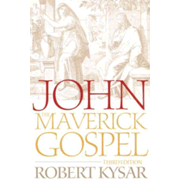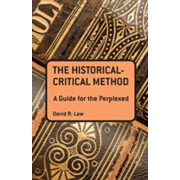AS WE begin the new liturgical calendar year, a season
of expectation begins. For the First Sunday of Advent we encounter a refrain read
from the Gospel According to Saint Luke. The text speaks plainly concerning that which comes
upon the Christian church working in the world…
“And
there will be signs in sun and moon and stars, and upon the earth distress of
nations in perplexity at the roaring of the sea and the waves, men fainting
with fear and with foreboding of what is coming on the world; for the powers of
the heavens will be shaken. And then they will see the Son of man coming in a
cloud with power and great glory. Now when these things begin to take place,
look up and raise your heads, because your redemption is drawing near.”
And he told them a parable: “Look at the fig
tree, and all the trees; as soon as they come out in leaf, you see for
yourselves and know that the summer is already near. So also, when you see
these things taking place, you know that the kingdom of God is near.
Truly, I say to you, this generation will not
pass away till all has taken place. Heaven and earth will pass away, but my
words will not pass away.
But take heed to yourselves lest your hearts
be weighed down with dissipation and drunkenness and cares of this life, and
that day come upon you suddenly like a snare; for it will come upon all who
dwell upon the face of the whole earth. But watch at all times, praying that
you may have strength to escape all these things that will take place, and to
stand before the Son of man.” (Luke 21:25-36)
Heaven
and Earth?
Our text we read from Luke was echoed into this gospel from
Mark 13:3-37 (likely written c.65-70A.D.). The words radiated from Luke across the Roman
Empire during the same decades as its contemporary reading Matthew
24:4-36 (c.85-90A.D.) As such, we Christians need more fully to comprehend this prophetic text given widely to the early Church, so we may yet derive direction for our own day.
Let
me offer that we must first note that our lesson is a historical word picture
painted. The word picture comes to us as illustrated directly by our Lord.
The portrait was about the desolation to be immediately expected back then… and the
eventual, and ultimate delivery of the Christian people. The Church would be founded by the Holy Spirit at Pentecost and it would include all who
are subsequently baptized and live in faith. Therefore since the lesson includes those of us living today,
the text rightly needs to be clearly understood by us, beginning from the prediction that Jesus gave to the apostles.
The initial discussion
began as the young rabbi taught his disciples while sitting across a valley from the
temple in Jerusalem. He told them that the time was soon coming upon them when one magnificent
stone of the temple would not be sitting on top of another. We believe that
these words came to us either as oral tradition or from a pre-Markan writing authored directly from the apostles. We
know that Mark’s more concise gospel is thought by many as written shortly after that desolation
of the temple in Jerusalem by the Romans.
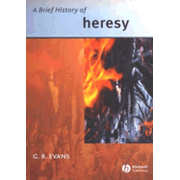 |
A Brief History of Heresy By G.R. Evans |
Mark had earlier related that our Lord indeed predicted the destructive event when he sat with his disciples on the Mount of
Olives. Jesus also forecast, as told both in Mark and Luke’s gospels… that the
disciples who were not yet the Church when hearing the message would receive further persecutions and
be beaten. They would be ridiculed concerning him.
Our Lord taught that when they saw the
desolation of that great temple, great trouble would be rapid in coming upon them all. The Christians living at that later time in the Roman Empire would even be blamed for its destruction. As described, students
of the Jewish prophets were keenly aware that this mirrored events
prophetically spoken about from centuries before. (reference, see Isaiah 13:10) The text written
here in Luke thus echoed the warning first given by Jesus to the disciples and the earlier readers
of Mark. A horrid time was coming soon upon the Church.
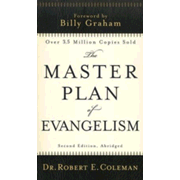 |
The Master Plan of Evangelism, 2nd edition, abridged By Dr. Robert E. Coleman |
The readers living in the latter days of the first century, were immersed in
the times of actual foreboding for the Church. For Luke's churches, the temple had already been plundered and
destroyed. The desolation of Jewish worship places and symbols is a historical fact. Because of the occurrences, however, possibly to steer hostilities away as they fled... the Jews had become very hostile toward Christians. They used them as political scapegoats, turning them in as hostile to the Roman authorities. Therefore, tumultuous, confusing events of the day certainly
made it seem to the Christians that the sun and moon no longer showed the Church the way ahead... the path to safely navigate into the future.
However, Jesus had also told them to realize that astrological
signs were not to be trusted . The sun, moon, and stars and planets would not guide the
steps of those who were supposed to be soothsayers and prophets. The people of God in Christ traveled
though darkness and tumult. More so, the stars we might guess metaphorically described many superstar leaders
of the Judaic religion, ones who had seemed so solidly fixed in the heavenly
realms... who had most certainly fallen. The synagogues were considered as immersed in darkness and blind since the candles on altars in Jerusalem were extinguished by the Romans.
Note especially here what our Lord told us. Jesus predicted that heaven and earth would pass away, but his words would not. We
examine this radical statement and find the historical Truth. For each of his
disciples then living, the heavens and earth passed away for them as each died. The Church thus, in the time
of Luke, approached a new century facing hard persecutions without
the leadership of those apostles. Offsetting those losses, the promise of Jesus' presence was yet upon
them. Our Lord had said that his words would not pass away. In fact, as proof... I offer that you read them in worship
yet today.
 |
The Women of Christmas: Experience the Season Afresh with Elizabeth, Mary, and Anna By Liz Curtis Higgs |
Keep
Awake!
Miraculously, a brightness was shining forth even before
the gospels were written. I consider that Luke’s community was truly
realizing the full, eternal gift of the Holy Spirit, the Spirit of the Father and the Son working amongst them.
Through this revelation given in the written Word they realized that the Son of Man who had described the
turmoil was still with them. As the Spirit guided the writings of Paul, Mark, Luke, Matthew, John, Clement and others, the Church rightly came to know that they were not abandoned. Jesus Christ was coming again.
Take note of the sequence here!
The disciples, the later church of Mark, and eventually Luke’s readers… were
told in simple agricultural analogy that these things would unfold as predicted.
Jesus instructed that the divinely-directed progression would occur until
the saving gospel went out in all directions. The example of the fig tree taught that from the first speaking by our Lord on the Mount of Olives, rooted events were
already unfolding. His followers certainly knew by the time of the writing of Mark... that
they were to do exactly as instructed. They were to “watch” in an active way. Consequently, anticipating the end times they watched... and they preached. The Lord said to his disciples that “this
generation shall not pass away” until they saw the desolation described.
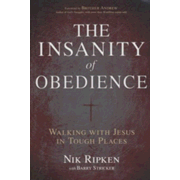 |
The Insanity of Obedience: Walking with Jesus in Tough Places By Nik Ripken with Barry Stricker |
As told to them, the prophetic words were true. Out of the dark hues described by our Lord’s words… out of the ashes of the dispersed Judaism… an eternal Christian Church arose. And even now, repeatedly as these years pass, through scriptures rightly interpreted... the Church is told to actively watch. Therefore I believe that despite the darkness of the times we are still in the growth stage, called to watch as more Christians appear. We shall rise up as baptized people in nations around the earth. I offer to you that the fig tree still springs forth and is flowering.
Those who watched faithfully
in the days of the gospel writings saw the beginnings of what would
come to be. Through these words from these two diverse faith communities of Mark and Luke, though writing some
20 years apart in time, we know that this lesson echoed forward. The message comes even to our own
day. As sinful people saved only by grace through faith given in Christ Jesus, neither our predecessors, nor we, have even yet come close to seeing the marvelous fullness of
the kingdom.
Each new day for the Church in this sinful and dirty earth, while we now plant a new liturgical year of the Church at Advent, congregations shall receive newness as the gospel
is proclaimed. As a pastor I say to you… watch actively… grab your biblical tools. Work out your future in
faith! Proclaim the scriptures to others in both Law and Gospel knowing that our Lord
shall come again. When the end times do come to us in finality we shall stand together
with those who have gone before us. We most certainly together shall see our loving God
as he is… as truly revealed in Christ Jesus, our Lord.



